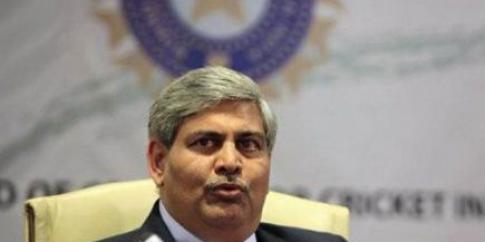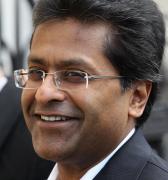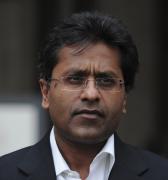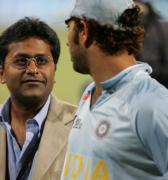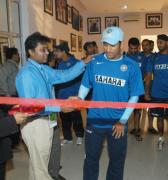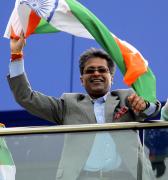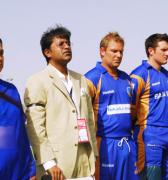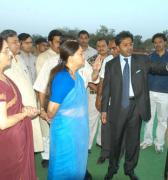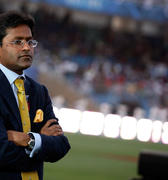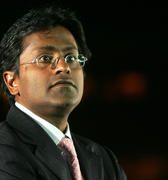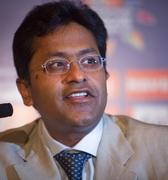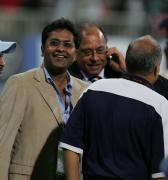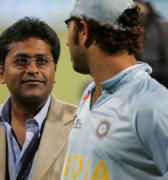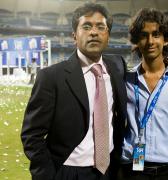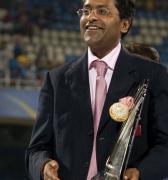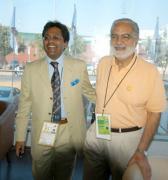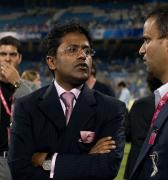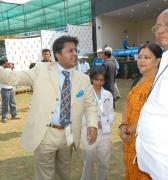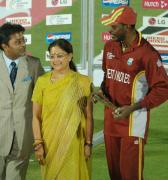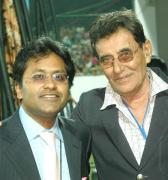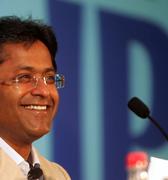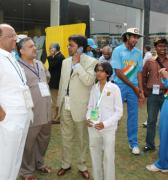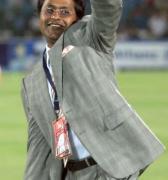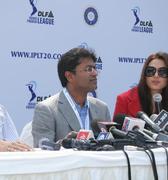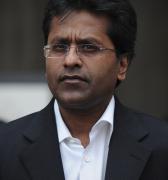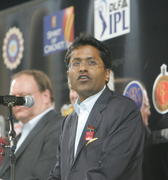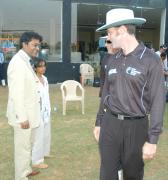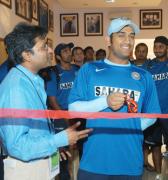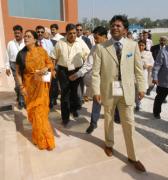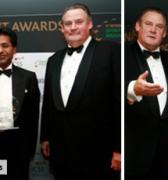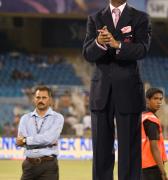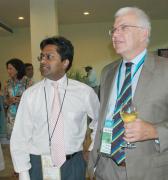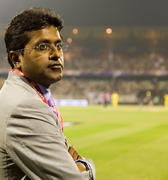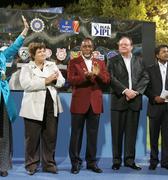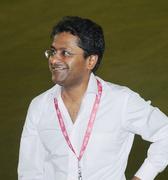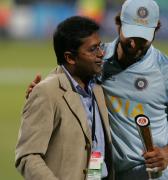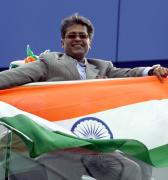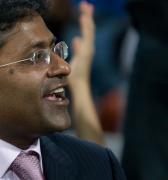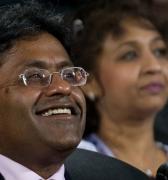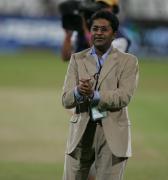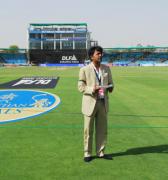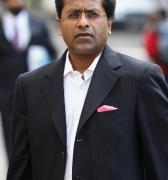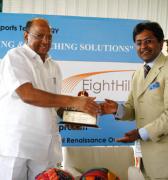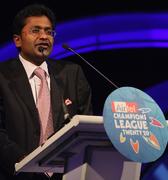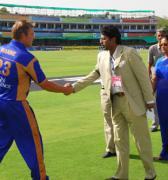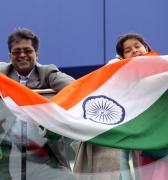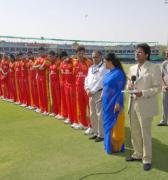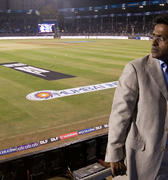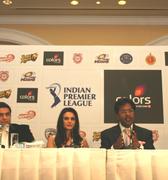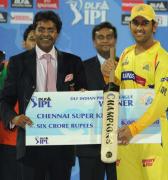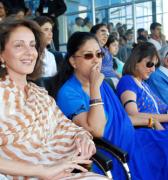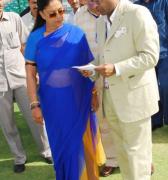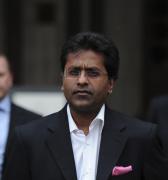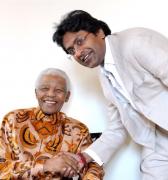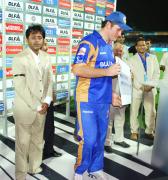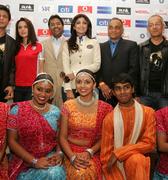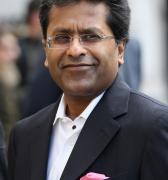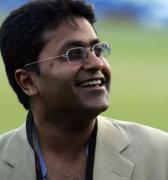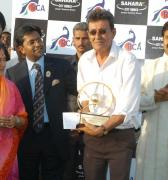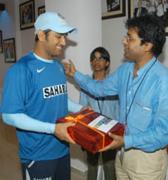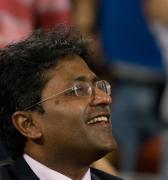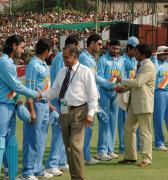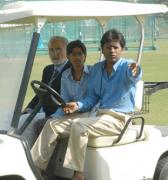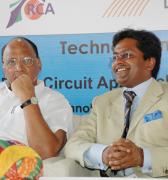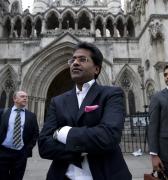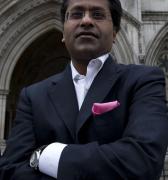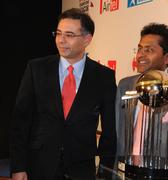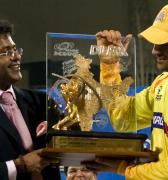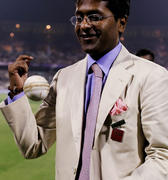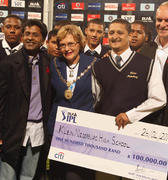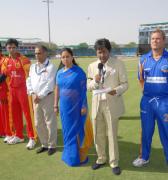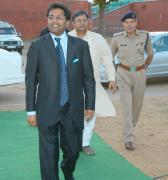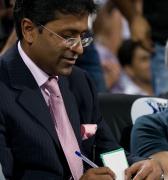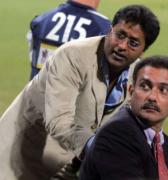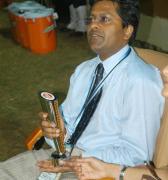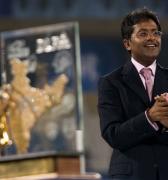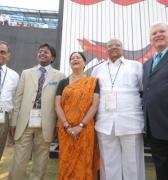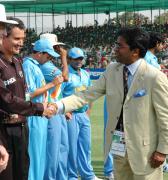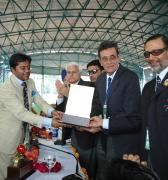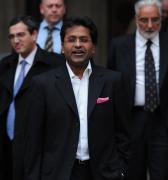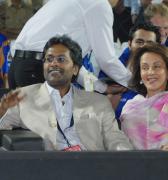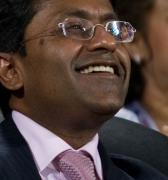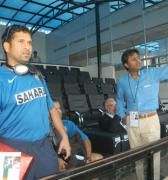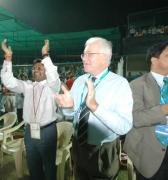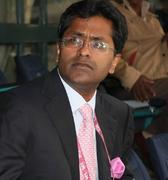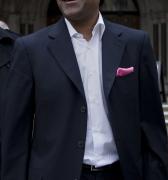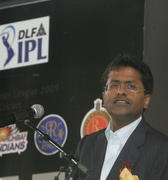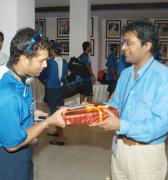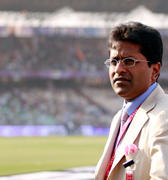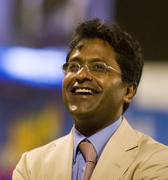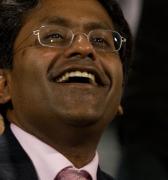Why did Manohar agree to stay on as ICC chairman?
Shashank Manohar's resignation as ICC chairman has been reversed due to his integral role in, and understanding of, the board's ongoing reform process
What made Shashank Manohar take back his resignation as ICC chairman? He likes to tell people that, once he has made up his mind, he does not change it. Indeed, after his resignation, he told ESPNcricinfo he would not reconsider his decision. Yet, less than 10 days later, Manohar is back, ultimately persuaded by a vast majority of the ICC Board directors to return.
The push to bring him back began immediately after the announcement of his resignation on the morning of March 15, as a host of ICC directors along with ICC management - led by CEO Dave Richardson - got into a huddle. The majority quickly agreed that they could not let Manohar go. As one of the main architects of the incoming and fresh ICC constitution, it was thought vital for him to see the process through.
Such was the support behind him, the ICC board resolution circulated this week requesting him to remain in post was passed with overwhelming support: nine of the ten Full Members backed it. Only Sri Lanka Cricket (SLC) opposed.
Manohar was told he could not go because he had to finish what he started, and that, as a man of integrity and, importantly, authority, he was the only one who could do it. The directors told him that they would respect the personal reasons for which he was stepping down, but that he should continue as the ICC chairman till the annual general meeting in June.
To begin with, Manohar was reluctant. "He said 'I will advise you [ICC],'" one of the directors told ESPNcricinfo. "I said, 'Shashank, that is not the same. You have got the clout of the title.
"He is the architect of the proposed constitutional changes. He is the man who has led that and therefore is the man who needs to finish it. We needed him to conclude the task."
Other than Richardson, Giles Clarke (ECB president, and a member of the team that has drafted the new constitution), Chris Nenzani (Cricket South Africa president) and Dave Cameron (WICB president) also called on Manohar to try and change his mind.
But the most important voice was that of Imran Khawaja, who sits on the ICC Board as the head of the Associates and also heads the ICC's development committee. According to one official, Khawaja had worked closely with Manohar in authoring the constitution and the two, according to another, enjoy a "good personal equation". Khawaja, a barrister himself and based in Singapore, was one of the first ICC officials that Manohar had called after he had made up his mind to resign.
This week Khawaja flew in to India and it is understood that he, along with Cricket Australia chairman David Peever, met Manohar in person to convince him. "Imran played a very pivotal role in this," an ICC director said. "He spoke to Manohar in detail about various things."
This director, as well as the pair of Khawaja and Peever, impressed upon Manohar that his knowledge of the BCCI was pivotal from the ICC point of view. With the Supreme Court-appointed Committee of Administrators grappling with different challenges in their running of the BCCI, Manohar's unique experience - having headed the Indian board and now the ICC - could be a catalyst for change. "We have these complex constitutional changes which have been debated lots," the director said.
"It is very obvious to us all - ICC directors - that we have got an enormously complex situation in India with the COA seeking guidance from the court on all sorts of matters, and so does the court, which is trying to understand the whole thing. Now you have got a man who understands the Indian court system - he is the ICC chairman. You don't want to lose that. He is valuable."
Another significant factor that might have influenced Manohar's change of mind was the fact that the BCCI endorsed the move to bring him back. The court-appointed Committee of Administrators (COA) is keen to engage in discussions to work a way through differences over the new constitution, rather than adopt the more confrontational methods of past administrations. That the COA is willing to talk is also because Manohar is equally happy to sit and talk.
According to ICC rules, if an existing chairman quits before finishing his tenure, the board picks an interim replacement from among the directors. One man who put his hat in his ring was SLC president Thilanga Sumathipala. However, the rest of the board was firmly in opposition.
One director was surprised by Sumathipala's move. "It would have been terribly difficult for anybody, and what we did not want was to have a whole load of toxic electioneering which Sumathipala exemplified. His conduct actually brought the board very fast together."
A senior official from another Full Member board was concerned the board could not invest time in choosing an interim chairman when it was about to usher in such wide-ranging reforms. "This is what I was most concerned about: while we were discussing the changes, it was the wrong time to think of a new chairman because invariably that position has been fought for by people with aspirations. Then the horse-trading and everything else becomes a mess. We don't need that at this juncture. It is absolutely the wrong time.
"In the end you would get reforms with massive compromise because to get Member X's vote you need to forego this particular thing, to get Member Y you need to increase this, to get Member Z you need to do something else. Then you will get their support. That is not the way to run an organisation."
What made Shashank Manohar take back his resignation as ICC chairman? He likes to tell people that, once he has made up his mind, he does not change it. Indeed, after his resignation, he told ESPNcricinfo he would not reconsider his decision. Yet, less than 10 days later, Manohar is back, ultimately persuaded by a vast majority of the ICC Board directors to return.
The push to bring him back began immediately after the announcement of his resignation on the morning of March 15, as a host of ICC directors along with ICC management - led by CEO Dave Richardson - got into a huddle. The majority quickly agreed that they could not let Manohar go. As one of the main architects of the incoming and fresh ICC constitution, it was thought vital for him to see the process through.
Such was the support behind him, the ICC board resolution circulated this week requesting him to remain in post was passed with overwhelming support: nine of the ten Full Members backed it. Only Sri Lanka Cricket (SLC) opposed.
Manohar was told he could not go because he had to finish what he started, and that, as a man of integrity and, importantly, authority, he was the only one who could do it. The directors told him that they would respect the personal reasons for which he was stepping down, but that he should continue as the ICC chairman till the annual general meeting in June.
To begin with, Manohar was reluctant. "He said 'I will advise you [ICC],'" one of the directors told ESPNcricinfo. "I said, 'Shashank, that is not the same. You have got the clout of the title.
"He is the architect of the proposed constitutional changes. He is the man who has led that and therefore is the man who needs to finish it. We needed him to conclude the task."
Other than Richardson, Giles Clarke (ECB president, and a member of the team that has drafted the new constitution), Chris Nenzani (Cricket South Africa president) and Dave Cameron (WICB president) also called on Manohar to try and change his mind.
But the most important voice was that of Imran Khawaja, who sits on the ICC Board as the head of the Associates and also heads the ICC's development committee. According to one official, Khawaja had worked closely with Manohar in authoring the constitution and the two, according to another, enjoy a "good personal equation". Khawaja, a barrister himself and based in Singapore, was one of the first ICC officials that Manohar had called after he had made up his mind to resign.
This week Khawaja flew in to India and it is understood that he, along with Cricket Australia chairman David Peever, met Manohar in person to convince him. "Imran played a very pivotal role in this," an ICC director said. "He spoke to Manohar in detail about various things."
This director, as well as the pair of Khawaja and Peever, impressed upon Manohar that his knowledge of the BCCI was pivotal from the ICC point of view. With the Supreme Court-appointed Committee of Administrators grappling with different challenges in their running of the BCCI, Manohar's unique experience - having headed the Indian board and now the ICC - could be a catalyst for change. "We have these complex constitutional changes which have been debated lots," the director said.
"It is very obvious to us all - ICC directors - that we have got an enormously complex situation in India with the COA seeking guidance from the court on all sorts of matters, and so does the court, which is trying to understand the whole thing. Now you have got a man who understands the Indian court system - he is the ICC chairman. You don't want to lose that. He is valuable."
Another significant factor that might have influenced Manohar's change of mind was the fact that the BCCI endorsed the move to bring him back. The court-appointed Committee of Administrators (COA) is keen to engage in discussions to work a way through differences over the new constitution, rather than adopt the more confrontational methods of past administrations. That the COA is willing to talk is also because Manohar is equally happy to sit and talk.
According to ICC rules, if an existing chairman quits before finishing his tenure, the board picks an interim replacement from among the directors. One man who put his hat in his ring was SLC president Thilanga Sumathipala. However, the rest of the board was firmly in opposition.
One director was surprised by Sumathipala's move. "It would have been terribly difficult for anybody, and what we did not want was to have a whole load of toxic electioneering which Sumathipala exemplified. His conduct actually brought the board very fast together."
A senior official from another Full Member board was concerned the board could not invest time in choosing an interim chairman when it was about to usher in such wide-ranging reforms. "This is what I was most concerned about: while we were discussing the changes, it was the wrong time to think of a new chairman because invariably that position has been fought for by people with aspirations. Then the horse-trading and everything else becomes a mess. We don't need that at this juncture. It is absolutely the wrong time.
"In the end you would get reforms with massive compromise because to get Member X's vote you need to forego this particular thing, to get Member Y you need to increase this, to get Member Z you need to do something else. Then you will get their support. That is not the way to run an organisation."
Courtesy: ESPNCricinfo








